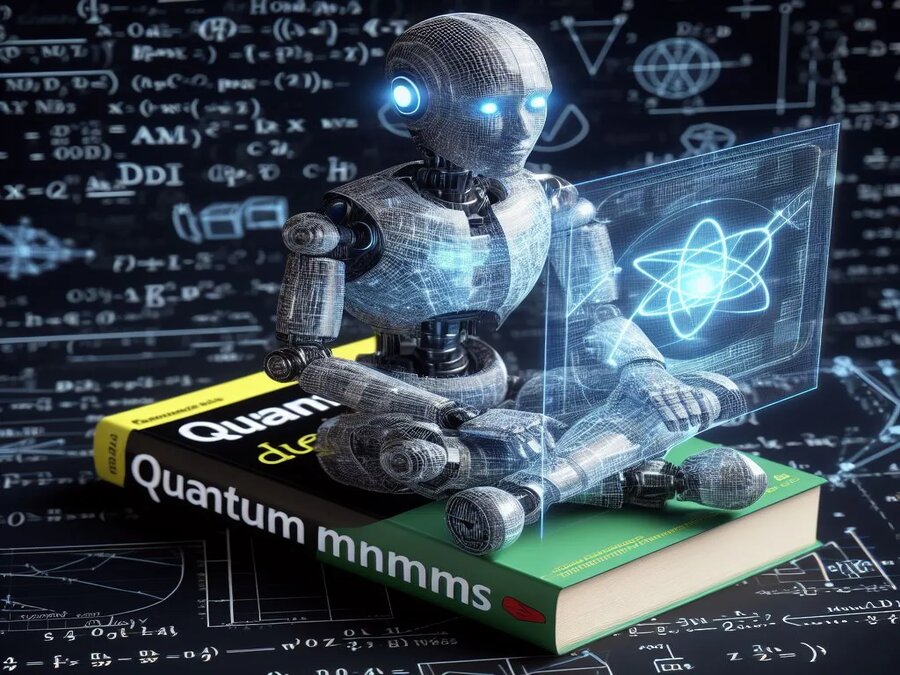Quantum AI results in the merging of two revolutionary domains: quantum computing and artificial intelligence (AI). Quantum computing, rooted in quantum mechanics principles, clamps the potential to transform computation, while AI continues its advancement in data processing. The hybridization utilizes the quantum entanglement, and superposition properties of quantum computers to ease the execution of the complex AI task. This intersection offers the prospect of addressing intricate issues that traditional computers fight with, leading the way for novel applications in machine learning, optimization, and computational tasks.
Understanding Quantum computer-based intelligence demands a grip on quantum processing essentials. Conventional PCs exploit bits in conditions of 0 or 1, while quantum PCs use quantum bits or qubits that can exist in various states at the same time, an idea known as superposition. This capacity empowers quantum PCs to lead equal calculations, at the same time investigating different potential outcomes. Ensnarement, one more significant quantum guideline, implies the condition of one qubit is reliant upon another, in any event, when isolated. This reliance permits quantum PCs to handle data in a profoundly connected way, improving their computational capacities.
A key promise of Quantum AI lies in the potential acceleration of algorithms crucial to AI. Grover’s algorithm, for instance, achieves a quadratic speedup for unstructured search problems. In contrast to classical computers conducting exhaustive searches, Grover’s algorithm explores possibilities concurrently, significantly reducing the time needed for a solution. Shor’s algorithm is another impactful quantum algorithm with implications for AI. It can factor large numbers exponentially faster than classical algorithms, highlighting the potential of quantum computing to tackle complex mathematical problems in AI applications.
In the field of material science, this booming advancement helps to identify the properties of newly developed materials in an accurate fashion that results in tremendous development in various fields such as medicine discovery, infrastructure development, etc., This growing technology will help to handle the complex problems that will require optimization to have better results. For instance, with the adverse impact of global warming, accurate climate predictions are becoming the more crucial demand of the hour. This can be sorted with ease with the combined impact of quantum computing and artificial intelligence.
Quantum AI (QML) investigates incorporating quantum registering into AI calculations. The ultimate objective of QML is to exploit the parallelism and entanglement capabilities of quantum computers to speed up computations and make machine learning models work better. Quantum brain networks address an unmistakable simulated intelligence approach, gained by quantum mechanics properties. Containing quantum pieces and doors, these organizations can deal with data in manners traditional brain networks cannot handle. Quantum brain networks can perform calculations at higher paces and address more intricate issues. Developing quantum neural networks involves adapting classical neural network architectures to quantum equivalents. Quantum gates replace classical logical operations, and qubit quantum states encode information. The entanglement of qubits allows for highly correlated computations, potentially leading to more powerful and efficient neural network models.
While achieving quantum supremacy is a significant focus, challenges persist. Quantum computers are much more reactive to external factors like temperature and electromagnetic radiation. Maintaining qubit stability remains a significant technical challenge. Building scalable and error-tolerant quantum computers is an ongoing research area. Quantum systems are susceptible to errors, making the development of error-correction techniques crucial for the reliability and practicality of quantum computing and Quantum AI in real-world applications. Further, the adaptation of new technologies will always be under legal, socio-economic, and legal constraints.
Even though at its budding stage, Quantum AI has been under active exploration by various organizations and researchers to explore its full potential in solving complex problems. In different fields such as finance, logistics, and operations research where optimization plays a crucial role, Quantum AI will be providing a significant victory. Quantum algorithms can efficiently explore vast solution spaces, moving towards faster and more optimal solutions. Quantum AI could make substantial contributions to drug discovery by accelerating simulations of molecular structures and interactions. Quantum computers have the potential to expedite these simulations, enabling more rapid drug discovery processes.
In conclusion, Quantum AI signifies the convergence of two transformative technologies that could reshape artificial intelligence. The unique principles of quantum computing, such as superposition and entanglement, offer a fundamentally different approach to computation, enabling the development of algorithms that surpass classical counterparts in specific tasks. Challenges persist, but ongoing advancements in quantum hardware, error correction, and algorithm development are expected to unlock new frontiers in artificial intelligence and computational capabilities. As the field evolves, Quantum AI may excel in a new era of computation, introducing unprecedented possibilities in artificial intelligence and beyond.
Source
- https://thequantuminsider.com/2023/03/15/how-close-are-we-to-quantum-artificial-intelligence/
- https://www.bitsathy.ac.in/quantum-transistor/
- https://www.investopedia.com/terms/a/artificial-intelligence-ai.asp
- https://www.fraunhofer.de/en/research/current-research/quantum-technologies/quantum-ai.html

